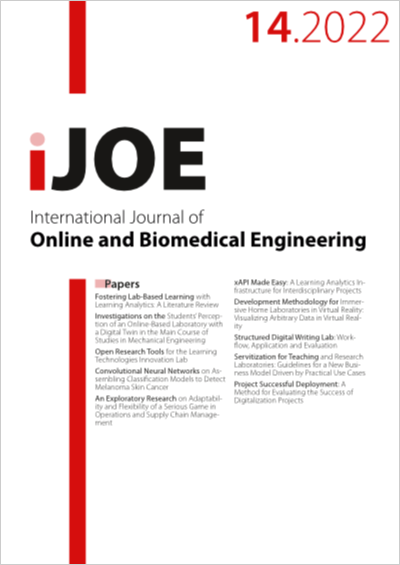Open Research Tools for the Learning Technologies Innovation Lab
DOI:
https://doi.org/10.3991/ijoe.v18i14.35077Keywords:
lab-based learning, learning analytics, educational research, serious games, collaboration learning, orchestration, research ecosystemAbstract
Orchestrating scientific work in educational research laboratories is demanding, especially when many interdisciplinary perspectives are involved. A monolithic approach does not suffice here. This paper describes an open-source architecture for an educational research laboratory. The presented system assists interdisciplinary scientists in implementing prototypes, evaluating new didactical approaches, researching collaborative learning processes, collecting learning analytics data, abstracting and automating experimental procedures, and securely monitoring progress within the lab, even in hybrid or remote setups. Due to both asynchronous and synchronous capabilities, the presented components make it easy to virtualize experiments, incorporate them in courses and lectures, and empower self-regulated but still monitorable learning processes.
The ecosystem described originated in the context of collaborative educational Serious Games for interactive table-top displays but is implemented modular and scales well regarding concurrent experiments, connected clients, and other use cases like VR and smart environments.
Downloads
Published
How to Cite
Issue
Section
License
Copyright (c) 2022 Matthias Ehlenz, Birte Heinemann, Ulrik Schroeder

This work is licensed under a Creative Commons Attribution 4.0 International License.


